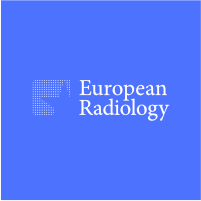Journals
European Radiology
The flagship journal of the European Society of Radiology (ESR) continuously updates scientific knowledge in clinical radiology by publishing original research articles of general interest and importance as well as state-of-the-art reviews, and short communications written by leading radiologists.
Members of the ESR receive free electronic access to the journal, which is Europe’s No.1 journal for general radiology.
European Radiology Experimental
The youngest member of the ESR journal family concentrates on basic scientific discoveries, novel approaches and techniques in experimental settings in the field of medical imaging. It is an online gold open access journal.
Article Processing Charges for publication in European Radiology Experimental are covered for all corresponding authors who are active members of the ESR.
Insights into Imaging
This online gold open access journal specialises on critical reviews, guidelines and policy statements, and is dedicated to education and strategies in radiology. Article Processing Charges for publication in Insights into Imaging are covered for all corresponding authors who are active members of the ESR.


